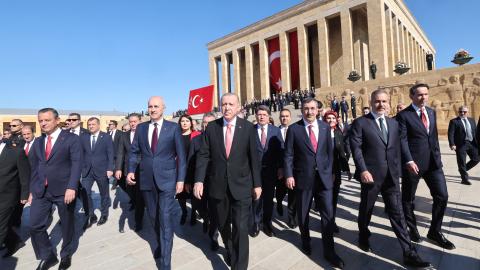Elliott Abrams’s letter “Put Not Your Trust in Recep Tayyip Erdogan” (April 16) urges treating Turkey as an adversary but never asks the next question: Then what? Turkey is invaluable to the central task of American statecraft: countering the challenge from the revisionist bloc of China, Russia, Iran and North Korea. The Turks operate across multiple theaters—Eastern Europe, the Balkans, the Middle East and the South Caucasus—support Ukrainian sovereignty and field the North Atlantic Treaty Organization’s second-largest army. Without them, the West can neither contain Russia nor sustain a viable order in Eurasia. Ask a Polish or Romanian official how secure they’d feel if Washington considered Ankara an adversary.
Turkey doubtless poses serious challenges, including growing hostility toward Israel. But labeling it an enemy risks deepening that hostility. Before making a bad situation worse, shouldn’t the Trump administration at least attempt to strike a balance between Ankara and Jerusalem?

















